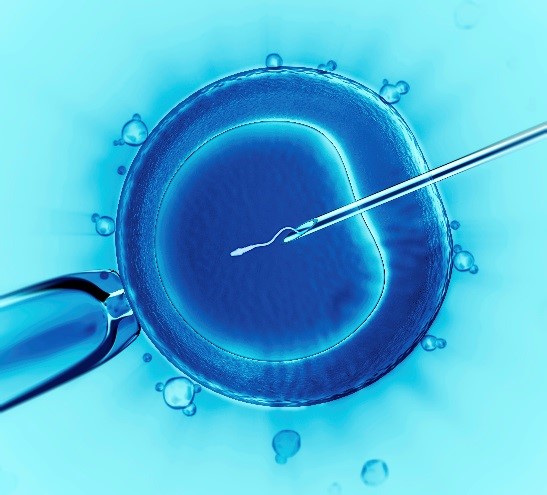Infertility: Symptoms, Causes, Treatment
What are the symptoms of infertility?
Infertility is defined as the inability to conceive after one year of regular, unprotected intercourse (or six months if the woman is over 35) or the inability to carry a pregnancy to term. In addition to the inability to conceive, infertility can also be associated with various symptoms and signs, which may include:
- Irregular menstrual cycles: Women with infertility may have irregular menstrual cycles, including cycles that are too long (oligomenorrhea) or too short (polymenorrhea), or absent periods (amenorrhea).
- Painful periods: Some women with infertility may experience painful periods (dysmenorrhea) or pelvic pain, which can be caused by conditions such as endometriosis or pelvic inflammatory disease (PID).
- Hormonal imbalances: Hormonal imbalances can contribute to infertility and may manifest as symptoms such as acne, excessive facial or body hair (hirsutism), or thinning hair.
- Changes in libido: Both men and women with infertility may experience changes in libido or sexual desire.
- Erectile dysfunction: Men with infertility may have difficulty achieving or maintaining an erection, which can be a sign of underlying medical conditions.
- Changes in ejaculation: Men with infertility may have problems with ejaculation, including premature ejaculation or retrograde ejaculation (ejaculation of semen into the bladder).
- Pain or swelling in the testicles: Men with infertility may experience pain or swelling in the testicles, which can be caused by conditions such as varicocele or infection.
- Changes in breast size or discharge: Some women with infertility may experience changes in breast size or discharge, which can be caused by hormonal imbalances.
It’s important to note that infertility can be caused by a wide range of factors, and not all individuals with infertility will experience these symptoms. Additionally, some individuals may have infertility without any noticeable symptoms. If you are experiencing difficulty conceiving, it’s important to see a healthcare provider for evaluation and diagnosis.
What are the causes of infertility?
Infertility can be caused by a variety of factors that affect either the male or female reproductive system, or both. Some common causes of infertility include:
- Ovulation disorders: Problems with ovulation, such as polycystic ovary syndrome (PCOS), hormonal imbalances, or thyroid disorders, can affect a woman’s ability to conceive.
- Tubal factors: Blockages or damage to the fallopian tubes can prevent the sperm from reaching the egg or the fertilized egg from reaching the uterus.
- Uterine or cervical abnormalities: Abnormalities in the uterus or cervix, such as polyps, fibroids, or cervical stenosis, can interfere with implantation or the passage of sperm.
- Endometriosis: Endometriosis is a condition in which tissue similar to the lining of the uterus grows outside the uterus, leading to inflammation, scarring, and infertility.
- Pelvic inflammatory disease (PID): PID is an infection of the female reproductive organs, often caused by sexually transmitted infections (STIs), which can lead to scarring and damage to the fallopian tubes.
- Male factors: Infertility in men can be caused by low sperm count, poor sperm motility (movement), or abnormal sperm morphology (shape).
- Age: Both female and male fertility decline with age, with women experiencing a more rapid decline after age 35.
- Lifestyle factors: Factors such as smoking, excessive alcohol consumption, drug use, obesity, and exposure to environmental toxins can all affect fertility in both men and women.
- Genetic factors: Some cases of infertility may be due to genetic factors that affect reproductive function.
- Unknown causes: In some cases, the cause of infertility may not be identified, despite thorough testing and evaluation.
It’s important to note that infertility is a complex issue, and there can be multiple factors contributing to a couple’s difficulty conceiving. A healthcare provider can conduct tests to help identify the underlying cause of infertility and recommend appropriate treatment options.
What is the treatment for infertility?
The treatment for infertility depends on the underlying cause and may vary from person to person. Some common treatments for infertility include:
- Lifestyle changes: Making healthy lifestyle choices such as maintaining a healthy weight, quitting smoking, reducing alcohol consumption, and managing stress can improve fertility.
- Medications: Fertility drugs may be prescribed to stimulate ovulation in women with ovulation disorders or to improve sperm production in men with infertility.
- Surgery: Surgical procedures may be used to correct anatomical abnormalities, such as blocked fallopian tubes or varicoceles (enlarged veins in the scrotum), that are causing infertility.
- Assisted reproductive technologies (ART): ART includes procedures such as in vitro fertilization (IVF), intracytoplasmic sperm injection (ICSI), and intrauterine insemination (IUI) that can help overcome various causes of infertility.
- Donor eggs or sperm: In some cases, using donor eggs or sperm may be an option for couples with severe infertility issues.
- Gestational carrier: In cases where a woman is unable to carry a pregnancy, a gestational carrier (surrogate) may be used to carry the pregnancy.
- Counseling: Infertility can be emotionally challenging, and counseling or support groups may be helpful for individuals and couples dealing with infertility.
- Alternative therapies: Some people may explore alternative therapies such as acupuncture, herbal supplements, or mind-body therapies to improve fertility, although the effectiveness of these treatments is not well-established.
It’s important for individuals and couples struggling with infertility to seek help from a healthcare provider experienced in treating infertility. A thorough evaluation can help identify the underlying cause of infertility and determine the most appropriate treatment options.




